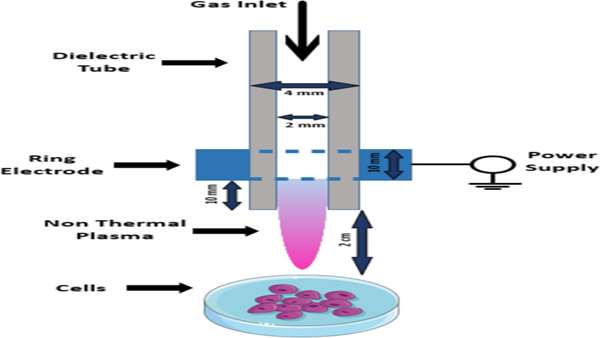Biophysical evaluation of treating adipose tissue-derived stem cells using non-thermal atmospheric pressure plasma
Non-thermal atmospheric pressure plasma (NTAPP) is a partially ionized gas containing fast electrons and relatively slow ions. NTAPP has potential applications in stem cell therapy and regenerative medicine. This study aimed to investigate the influences of NTAPP on human adipose tissue-derived stem cells (ADSCs) and examine the feasibility of using optical spectroscopy as a non-destructive method for cell analysis.
Adipose tissue-derived stem cells (ADSCs) are mesenchymal stem cells with the capacity for self-renewal and the ability to differentiate. They can be isolated from adipose tissues by liposuction, and they can be used in stem cell therapy and regenerative medicine.
Adipose tissue from patients undergoing liposuction was used to isolate mesenchymal stem cells (ADSCs) for study. While high dose NTAPP induces ADSCs death, lower doses enhance proliferation without affecting their stem cell characteristics. Findings support the potential application of NTAPP in regenerative medicine and stem cell therapy. ADSCs were isolated from adipose tissue and characterized as plastic adherent cells with fibroblastic morphology.
These findings confirm that NTAPP treatment does not alter ADSCs' stemness characteristics. NTAPP, in shallow doses, caused a dose-dependent increase in the number of cells. Increased cell death was associated with a rise in the percentage of cells in the sub-G1 phase. These results indicate a decrease in cell viability in a high dose of plasma treatment. Finally, The effect of NTAPP on other stem cells needs to be studied to improve NTAPP as a valuable method for biomedical application.




ارسال به دوستان